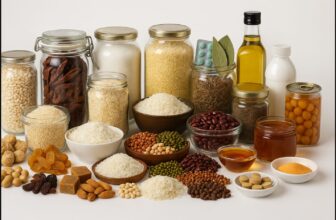Liver health is becoming a major concern across India. A 2022 meta-study estimated that 38.6% of Indian adults and 35.4% of children show signs of Non-Alcoholic Fatty Liver Disease (NAFLD), a condition linked to obesity, diabetes, and poor diet. Hepatitis infections, alcohol-related disease, and environmental toxins add further strain.
Doctors increasingly recommend lifestyle interventions alongside medical care. Unlike the sugary, milk-heavy versions many of us are used to, plain black coffee comes loaded with antioxidants, anti-inflammatory compounds, and metabolic boosters. Studies from across the world and recent findings highlighted in India, suggest that two to three cups a day could lower your risk of fatty liver, cirrhosis, and even liver cancer. For something as simple and accessible as coffee, the potential impact is remarkable.
1. Black Coffee May Lower Risk of Liver Cancer
Large global studies suggest that coffee drinkers have a lower incidence of hepatocellular carcinoma (HCC), the most common form of liver cancer.
- A dose-response meta-analysis of 20 cohort studies found that people drinking the most coffee had ~45% lower risk of HCC compared to those drinking little or none. Each additional cup/day further reduced risk.
- Mechanism: antioxidants like chlorogenic acid and caffeine suppress oxidative stress and reduce tumor growth.
For India, where liver cancer often emerges from hepatitis B/C or cirrhosis, such protection is noteworthy.
2. It Helps Slow Progression of Cirrhosis and Fibrosis
Cirrhosis, scarring of the liver, is a common pathway for chronic liver disease.
- A meta-analysis covering 11 studies found coffee drinkers had ~35% lower odds of significant fibrosis.
- Reviews in Journal of Hepatology highlight consistent links: 2-3 cups/day associated with slower cirrhosis progression.
This means that for patients with fatty liver or hepatitis, moderate black coffee could help delay severe complications.
3. It Brings Down Elevated Liver Enzymes
ALT, AST, and GGT are enzymes doctors test to measure liver stress. High values indicate damage.
- A 2024 study of 222,067 coffee drinkers showed significantly lower enzyme levels among regular consumers.
- Smaller trials also confirm improved enzyme profiles in people with alcohol use and NAFLD.
In India, where preventive health checks are becoming more common, black coffee could be a simple step to support healthier reports.
4. It Lowers Risk of Fatty Liver (NAFLD)
Fatty liver is now India’s “silent epidemic”, tied to sedentary lifestyles and high-carb diets.
- Observational studies suggest that 3 cups/day may cut NAFLD risk by ~20%.
- Indian media reported findings that coffee drinkers had nearly 49% lower risk of death from chronic liver disease.
Coffee seems to improve insulin sensitivity and fat metabolism, reducing fat build-up in the liver.
5. Coffee Protects in Alcohol-Related Liver Damage
Though moderation is best, studies indicate coffee may lower cirrhosis risk in alcohol users.
- Cohort data shows heavy drinkers who consumed coffee had lower rates of cirrhosis compared to those who didn’t.
- Likely mechanism: caffeine and antioxidants counter oxidative stress from alcohol breakdown.
This is particularly relevant in India where alcohol consumption is rising in urban centers.
6. It Supplies Antioxidants That Reduce Oxidative Stress
Coffee is one of the richest sources of dietary antioxidants.
- Compounds like caffeic acid and cafestol trigger the liver’s natural defense (Nrf2 pathway), reducing oxidative damage.
- This helps keep liver cells healthy and slows inflammation.
Considering India’s exposure to pesticides, pollution, and processed foods, this antioxidant boost is valuable.
7. It Improves Insulin Sensitivity
Type 2 diabetes, highly prevalent in India, is a major risk factor for fatty liver.
- Coffee consumption is consistently linked to reduced risk of diabetes in long-term studies.
- Better insulin sensitivity means less fat is stored in the liver, lowering progression to NAFLD or fibrosis.
8. It Reduces Mortality From Chronic Liver Disease
- Reports indicate that drinking ~3 cups/day is linked to 49% lower risk of death from chronic liver disease.
- This includes conditions like cirrhosis, advanced NAFLD, and liver failure.
Such findings emphasize coffee’s role not just in prevention, but in improving long-term survival.
9. Benefits Even in Existing Liver Disease
Evidence shows black coffee is not just preventive, it helps even after disease onset.
- Studies note that patients with hepatitis or early fibrosis who drank coffee had slower progression.
- The risk of liver cancer remained lower in coffee drinkers with existing damage compared to non-drinkers.
This means coffee can be part of lifestyle guidance even for those already under liver care.
10. It Shows a Clear Dose-Response Relationship
One strength of coffee research is the dose-response effect.
- Each additional cup/day reduces liver disease risk further (up to around 3-4 cups).
- Highest vs lowest consumption: ~45-55% lower risk of liver cancer and cirrhosis.
This pattern strengthens the case that the link is real, not random.
11. It Helps Reduce Inflammation and Fat Accumulation
Finally, coffee intake is associated with lower inflammatory markers and reduced fat in the liver.
- Reviews and smaller trials show decreased oxidative stress and improved fat oxidation in NAFLD patients.
- Less fat and inflammation means a healthier liver, lower fibrosis, and better function.
How Much Black Coffee Is Safe?
- Most benefits appear at 2-3 cups/day (~200-300 mg caffeine).
- More than 5-6 cups may cause insomnia, acidity, or palpitations.
- Sensitive groups (pregnant women, people with ulcers, arrhythmias) should limit or avoid.
The Right Way to Drink Black Coffee in Homes
- Keep it simple, Adding sugar, cream, or flavored syrups may make it tastier, but they also bring extra calories and fat that work against the protective effects.
- Both freshly brewed filter coffee and plain instant coffee are fine; the key is avoiding unnecessary additives.
- What you should avoid are premixed sachets, sweetened cold coffees, and high-calorie café versions that are more like desserts than drinks. Keeping it simple ensures you’re drinking coffee for your health, not just as a treat.
Disclaimer – What Research Doesn’t Prove (Yet)
- Many studies are observational; they show correlation, not direct causation. Confounding factors (diet, alcohol, exercise, genetic risk) matter.
- The threshold for “how much coffee” is still imprecise: some studies define “high” consumption differently.
- Effects vary by how coffee is prepared (filter vs unfiltered, diluted vs concentrated), what you put in it (sugar, milk, cream), and personal tolerance or other health conditions.
- Side effects of too much coffee (insomnia, acidity, restlessness) are real and need consideration.
Summary – Black Coffee & Liver Health
Black coffee is not a cure, but it’s one of the most consistent dietary factors linked with better liver health. For Indians facing rising fatty liver, diabetes, and cirrhosis, a habit as simple as drinking 2-3 cups of unsweetened black coffee daily could reduce risks of cancer, cirrhosis, and even death from chronic liver disease.
Pair it with balanced diet, exercise, limited alcohol, and regular check-ups, and your morning coffee becomes more than a ritual. It becomes a shield for your liver.
Sources:
- https://www.nature.com/articles/s41598-024-79929-4
- https://pmc.ncbi.nlm.nih.gov/articles/PMC9349493/
- https://www.nature.com/articles/srep37488
- https://www.nature.com/articles/s41598-025-91482-2





